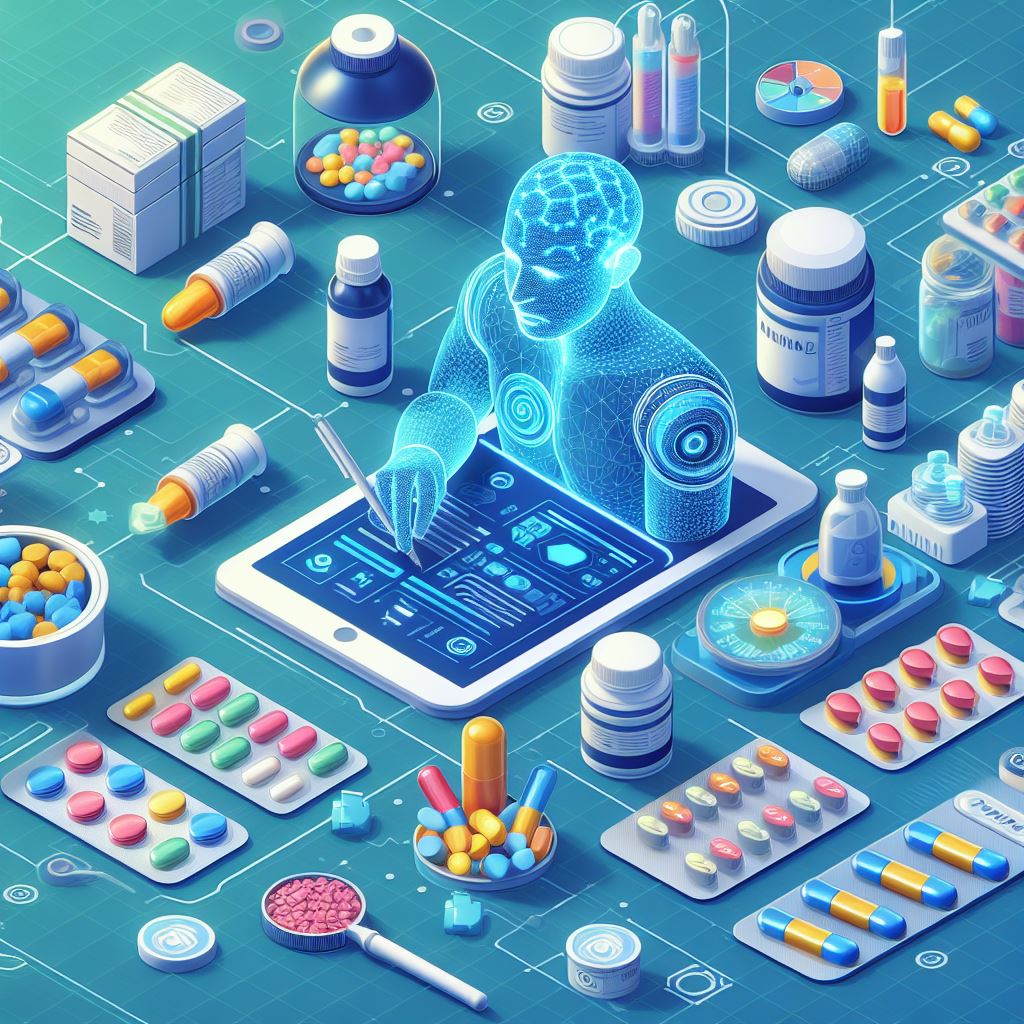Table of Contents
In today’s world, where innovation is the cornerstone of progress, artificial intelligence (AI) stands out as one of the most transformative technologies across various sectors. Among them, the pharmaceutical industry is experiencing a seismic shift propelled by AI-driven advancements. This convergence of cutting-edge technology and healthcare holds the promise of revolutionizing drug discovery, development, and delivery, ultimately improving patient outcomes and reshaping the landscape of medicine.
AI in Drug Discovery
Traditionally, drug discovery has been a time-consuming and resource-intensive process, often taking years and billions of dollars to bring a single drug to market. However, with AI, this paradigm is rapidly changing. Machine learning algorithms can analyze vast amounts of biological data, including genomics, proteomics, and chemical compounds, to identify potential drug candidates more efficiently than ever before.
By leveraging AI, researchers can sift through massive datasets to pinpoint molecules with the highest probability of success, significantly accelerating the early stages of drug discovery. Moreover, AI algorithms can predict the efficacy and safety of these compounds, enabling scientists to prioritize candidates with the greatest therapeutic potential while minimizing risks.
Accelerating Clinical Trials
Clinical trials are a critical phase in drug development, yet they are often plagued by challenges such as patient recruitment, trial design optimization, and data analysis. AI solutions are streamlining this process by analyzing patient data to identify suitable candidates for trials, optimizing trial protocols to enhance efficiency and accuracy, and analyzing real-time data to monitor patient responses and identify potential adverse events.
Furthermore, AI-powered predictive modeling can forecast patient outcomes, allowing researchers to make data-driven decisions and adapt trial strategies in real time. These advancements not only reduce the time and cost of clinical trials but also increase their success rates, ultimately bringing life-saving treatments to patients faster.
Personalized Medicine
One of the most promising applications of AI in healthcare is the development of personalized medicine. By analyzing patients’ genetic, molecular, and clinical data, AI algorithms can identify biomarkers and patterns that enable tailored treatment strategies based on individual characteristics.
Personalized medicine not only enhances treatment efficacy but also minimizes adverse effects and reduces healthcare costs by avoiding unnecessary treatments. AI-driven diagnostic tools can also aid in early disease detection, allowing for timely interventions and improved patient outcomes.
Drug Repurposing and Optimization
Beyond drug discovery, AI is transforming the way existing drugs are utilized. By analyzing drug interactions, molecular structures, and biological pathways, AI algorithms can identify new indications for existing drugs, a process known as drug repurposing. This approach accelerates the development of treatments for various diseases by leveraging existing medications with established safety profiles.
Moreover, AI can optimize drug formulations and dosing regimens to maximize efficacy and minimize side effects, enhancing patient adherence and therapeutic outcomes.
Regulatory Compliance and Drug Safety
Ensuring regulatory compliance and drug safety is paramount in the pharmaceutical industry. AI-powered systems can analyze vast amounts of regulatory data and scientific literature to streamline the regulatory approval process, identify potential safety issues, and facilitate post-market surveillance.
By leveraging natural language processing (NLP) and machine learning, these systems can extract relevant information from unstructured data sources, such as medical records and adverse event reports, enabling proactive risk management and ensuring patient safety throughout the drug lifecycle.
Conclusion
The integration of AI into the pharmaceutical industry heralds a new era of innovation and efficiency. From accelerating drug discovery and development to enabling personalized medicine and enhancing regulatory compliance, AI is reshaping every facet of the pharmaceutical landscape.
As AI technologies continue to evolve and mature, their impact on healthcare will only grow stronger, unlocking new possibilities for treating diseases, improving patient outcomes, and advancing medical science. Embracing this AI revolution is not just a choice but a necessity for staying competitive and delivering the best possible care in the 21st century.
